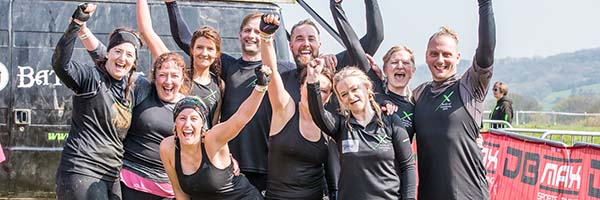Obstacle Course Racing (OCR) is a physically and mentally demanding sport that pushes athletes to their limits. While strength, speed, and agility are critical, the often-overlooked elements of mindfulness and recovery play a pivotal role in an athlete’s overall performance and well-being. Incorporating mindfulness practices and effective recovery techniques can help OCR athletes enhance their focus, reduce injury risk, and sustain long-term success in the sport. Here’s why both are important and how you can integrate them into your routine.
The Importance of Mindfulness for OCR Athletes
Mindfulness involves being fully present and engaged in the current moment. For OCR athletes, mindfulness can:
- Enhance Focus: Staying mentally present helps in navigating obstacles more efficiently
- Reduce Anxiety: Managing pre-race nerves and mid-race stress improves performance
- Improve Decision-Making: Quick, clear decisions are essential in the dynamic environment of an OCR
The Importance of Recovery for OCR Athletes
Recovery is crucial for repairing muscles, preventing injury, and improving future performance. Effective recovery can:
- Prevent Overtraining: Balanced recovery reduces the risk of burnout and overuse injuries
- Improve Performance: Restored muscles and energy levels lead to better training sessions and race outcomes
- Maintain Long-Term Health: Adequate recovery supports overall physical and mental health, allowing athletes to compete longer
Mindfulness Practices for OCR Athletes
- Breathing Exercises: Practice deep, diaphragmatic breathing to reduce stress and increase oxygen flow to your muscles
- Meditation: Spend 10-15 minutes daily in meditation to clear your mind and improve focus
- Visualization: Visualize completing obstacles successfully. This mental rehearsal can enhance physical performance
- Body Scanning: Regularly scan your body to identify and release tension, promoting relaxation and reducing injury risk
- Mindful Movement: Engage in activities like yoga or tai chi, which combine physical movement with mindfulness, enhancing body awareness and flexibility
- Gratitude Journaling: Keep a journal to note things you’re grateful for, which can improve mental resilience and positivity
- Mindful Eating: Pay attention to your food choices and eating habits to ensure you’re fueling your body effectively
- Progress Reflection: Regularly reflect on your training progress and goals, maintaining a mindful approach to improvement
Recovery Techniques for OCR Athletes
- Active Recovery: Engage in low-intensity activities like walking, swimming, or cycling to promote blood flow and muscle recovery without adding stress
- Hydration and Nutrition: Maintain proper hydration and consume a balanced diet rich in proteins, healthy fats, and carbohydrates to support muscle repair and energy replenishment
- Sleep: Aim for 7-9 hours of quality sleep per night to allow your body to fully recover and regenerate
- Foam Rolling and Stretching: Use foam rollers and stretch regularly to reduce muscle tightness and improve flexibility
- Cold Therapy: Apply ice packs or take cold baths to reduce inflammation and muscle soreness
- Massage Therapy: Regular massages can help relieve muscle tension and improve circulation
- Compression Gear: Wear compression garments to support muscle recovery and reduce soreness
- Scheduled Rest Days: Incorporate rest days into your training schedule to allow your body to recover fully
- Listen to Your Body: Pay attention to signs of overtraining and adjust your training intensity and recovery strategies accordingly
- Mental Relaxation Techniques: Engage in activities that relax your mind, such as reading, listening to music, or spending time in nature.
By integrating these mindfulness and recovery techniques into your routine, you can optimize your training, enhance your performance, and ensure long-term success in OCR. Remember, a well-rounded approach that balances physical exertion with mental and physical recovery is key to becoming a resilient and successful OCR athlete.
Back to Blog



